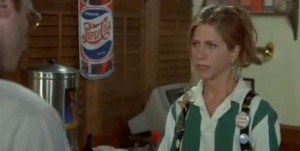Would Taxes on Sugar Make You Eat Less of It

Four writers of what we might call “Food Theory,” including Mark Bittman and Michael Pollan, published an op-ed in the Washington Post calling for a coherent national food policy. Right now, we have a contradictory hodgepodge: on one hand, the First Lady encourages young people to “move more” and eat right, and on the other the President signs Farm Bills encouraging agribusiness to grow cheap starch.
There has been some interesting movement on the subject of food lately, though: making history, 75% of voters in Berkeley just approved a Soda Tax. (More precisely, a sweetened beverage tax from which Diet Coke and the like will be exempt. PHEW.)
Large soda companies have spent around $128 million to defeat 31 other local measures around the country. In Berkeley they spent around $2.4 million. The Ecology Center, one of the key backers of the tax, issued a victory statement at 11:11 p.m. Part of the statement reads: “We fully expect other communities to take on the soda industry and succeed,” says Yes on D Co-Chair Dr. Vicki Alexander. “Berkeley has a proud history of setting nationwide trends, such as non-smoking sections in restaurants and bars, curb cuts for wheelchairs, curbside recycling, and public school food policies. Many communities have the same ingredients that made Measure D possible in Berkeley: proactive parents and community leaders who care about the health of their kids.”
San Francisco, offered the same choice, said thanks but no thanks, you Nanny McPhees, we like our cheap corn syrup just fine. This proves once and for all that to reach the Republic of Berkeley you drive your Tesla out past Asheville, Brooklyn, Austin, Portland, and Haight-Ashbury, and then turn left.
“Voters know that a new tax on beverages like juice drinks and soda would have driven up grocery prices, and made it more expensive to live and work in San Francisco,” [successful lobbyist] said. “Tonight, San Franciscans have made it clear that they can decide for themselves what to eat and drink. It’s time for our elected leaders to focus on issues like affordability, public safety, homelessness and keeping streets and parks clean.”
Politico assesses the impact of the nation’s first:
Berkeley has now done what more than two dozen other cities and states have tried and failed to do in recent years: put in place a punitive tax on sugar-sweetened beverages designed to reduce consumption and raise revenue. The measure, which covers sports drinks, sweet teas and beverage syrups used in coffee shops, would raise the price of a 20-ounce Coca-Cola by about 10 percent. The tax, which does not apply to diet sodas, kicks in Jan. 1. …
health advocates are practically jumping for joy. After decades of hard-fought losses on soda taxes, they hope their victory in Berkeley will breathe new life into the issue. The win is “absolutely huge,” according to Marion Nestle, a professor at New York University and author of “Food Politics.”
“Yes, it’s Berkeley, yes, it’s a liberal community with a big university, but there are lots of communities like that in America,” said Nestle, who is currently working on a book about food advocacy and the soda industry. “Others will certainly do the same thing. If it could win in Berkeley, it could win in a lot of places. Maybe it will pass in Austin. Maybe it will pass in Ithaca. … Other places are going to try this.”
And they might also succeed. Will a few cents make a difference to anyone? If you want a Fanta, will it make you think twice to have to spend 10% more? Are you more likely to try Diet Fanta if it costs 10% less?
Calorie-dense, nutrition-lite beverages like soda are cheap and appealing because government subsidies artificially lower the prices of corn. It’s kind of funny for government to then add taxes to make us pause before gorging ourselves on Mountain Dew. You could also argue, though, that, considering, it’s the least they can do.
Support The Billfold
The Billfold continues to exist thanks to support from our readers. Help us continue to do our work by making a monthly pledge on Patreon or a one-time-only contribution through PayPal.
Comments